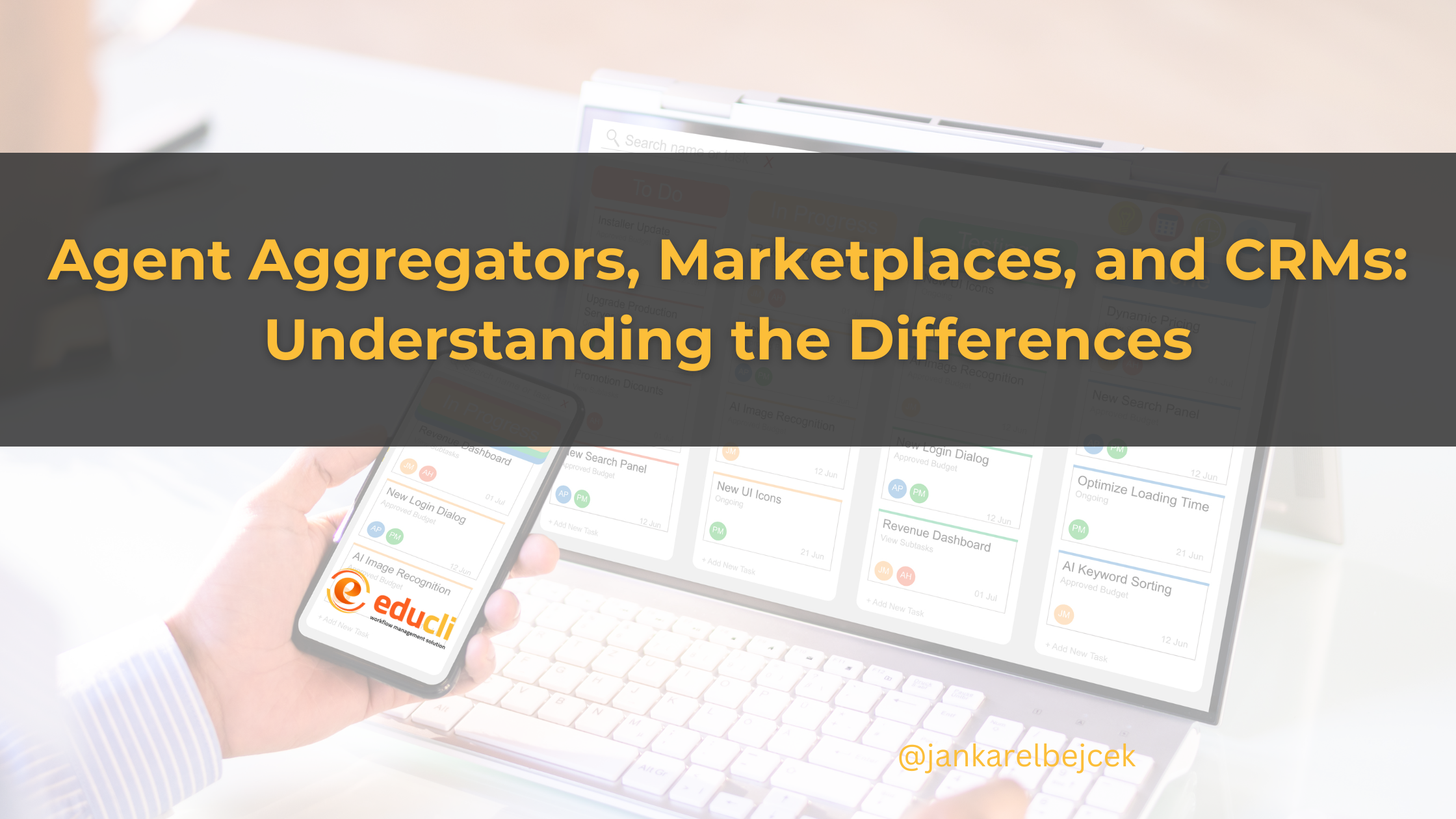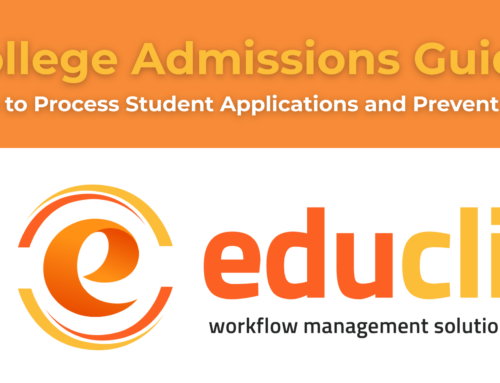The digital transformation of the international education industry has given rise to various platforms aimed at improving efficiency, student recruitment, and overall business operations. Among these platforms, agent aggregators, marketplaces, and customer relationship management (CRM) systems are often used interchangeably, but they serve distinct purposes.
Understanding the key differences between these solutions is crucial for education providers, migration and education agents, and students who want to make informed decisions about their technology stack.
1. Agent Aggregators: The Middlemen of the Education Industry
Definition
An agent aggregator is a platform that connects education providers (universities, colleges, and language schools) with education agents worldwide. It acts as an intermediary that facilitates applications, commissions, and communication between institutions and agents.
Key Features
- Centralised Application Processing – Aggregators provide a single-entry platform for multiple institutions, allowing agents to submit student applications more efficiently.
- Commission Handling – They help standardise commission payments, often managing payouts on behalf of the institution.
- Quality Control & Vetting – They screen agents and institutions to ensure compliance with industry regulations and reduce fraudulent applications.
- Data Insights – Some platforms provide analytics on student applications, visa success rates, and agent performance.
Examples of Agent Aggregators
- ApplyBoard
- Adventus.io
Pros & Cons
| Pros | Cons |
| Reduces administrative burden for education providers | Agents may lose direct relationships with universities |
| Expands access to a global network of agents | Institutions rely on aggregator rules for commissions |
| Streamlines compliance and reduces fraud risks | Limited ability for institutions to differentiate themselves |
2. Marketplaces: The Open Ecosystem for Students and Institutions
Definition
A marketplace is a digital platform where students can browse, compare, and apply to courses directly from institutions. Unlike agent aggregators, which focus on agent-to-institution relationships, marketplaces target students directly and often cut out the middleman.
Key Features
- Course Listings – Institutions showcase their programs, fees, and entry requirements.
- Direct Student Applications – Some platforms allow students to apply directly, with or without an agent.
- AI-Powered Matching – Some marketplaces recommend programs based on a student’s profile, academic background, and visa eligibility.
- Integrated Payment & Visa Assistance – Some offer tuition fee payments, scholarships, and visa guidance.
Examples of Marketplaces
- StudyPortals
- IDP (via Hotcourses)
- UniSearch
Pros & Cons
| Pros | Cons |
| Students get direct access to multiple institutions | Institutions may struggle with visibility due to competition |
| Reduces dependency on agents | Students may lack personalised support in applications |
| Institutions can manage branding and marketing campaigns | Requires marketing investment to attract students |
3. CRM (Customer Relationship Management) Systems: The Backbone of Operations
Definition
A CRM (Customer Relationship Management) system is a software tool that helps institutions, education agents, and businesses manage interactions with students, parents, and stakeholders throughout the student journey. Unlike aggregators and marketplaces, a CRM is not a recruitment platform but a tool for tracking leads, managing follow-ups, and automating workflows.
Key Features
- Lead Tracking & Nurturing – Captures inquiries from students, assigns leads to counselors, and automates follow-ups.
- Communication Tools – Integrated email, WhatsApp, and SMS functionalities for better engagement.
- Application & Document Management – Stores student documents, application statuses, and updates.
- Task & Workflow Automation – Helps counselors and administrators streamline processes.
- Analytics & Reporting – Provides insights into recruitment performance, conversion rates, and agent productivity.
Examples of CRMs in International Education
- Educli
- HubSpot (customizable for education agents)
- Salesforce (Education Cloud)
- TNE CRM
- LeadSquared
Pros & Cons
| Pros | Cons |
| Enhances efficiency and follow-up with prospective students | Requires training and customisation for specific needs |
| Helps manage large volumes of leads | May not provide direct student recruitment functionalities |
| Centralised data and automation save time | Subscription costs may be high for small businesses |
Which One Should You Use?
| Feature | Agent Aggregator | Marketplace | CRM |
| Best for | Education agents & institutions | Students & institutions | Education providers & agents |
| Focus | Agent-institution relationship | Student-institution matchmaking | Lead & application management |
| Application Handling | Managed by agents | Managed by students (or hybrid) | Managed internally |
| Direct Student Interaction | No | Yes | No |
| Automation & Analytics | Moderate | High | High |
- If you are an education agent → A CRM will help you manage leads, while an agent aggregator expands your partnerships.
- If you are an education provider → A CRM helps with student engagement, while a marketplace increases direct applications.
- If you are a student → A marketplace is the best way to compare institutions and apply directly.
Hybrid Models Are Emerging
Some platforms, like Educli, combine marketplace with CRM functionalities, allowing education providers to manage agent networks, track student applications, and automate recruitment processes in one ecosystem.
Conclusion
While agent aggregators, marketplaces, and CRMs all contribute to student recruitment and education business management, they serve different stakeholders and needs. Choosing the right platform depends on your role in the education ecosystem—whether you’re an institution, agent, or student.
Would you like more insights on how these models work in practice, or how Educli can integrate some of these functions? Contact us.
#internationaleducation #studyabroad #crm #edtech #educli





Leave A Comment